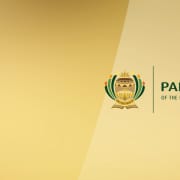|
Getting your Trinity Audio player ready...
|
The revised code of conduct for South Africa’s public servants came into effect on 1 August 2016. Among others, it prohibits public servants from doing any form of business with organs of state, whether in as individuals or through companies in which they hold directorships.
This has not stopped thousands from doing just that. Back in November 2018, the Department of Public Service and Administration (DPSA) reported to the parliamentary committee for public service and administration that in February 2017 National Treasury found 8 495 public service employees registered on the central supplier database (CSD).
Of these, 5 366 were from provincial government and 3 129 from national departments.
A year later, the number of government employees registered on the CSD had jumped to 15 070, where 10 315 were from provinces and 4 755 from national departments. In this shady group, 679 employees were actually conducting business with an organ of state (183 from national departments and 496 from provincial departments).
In January this year Western Cape premier Patricia de Lille revealed that 3 700 employees were found to be doing business illicitly with the state. This is just one of nine provinces. It’s not unreasonable to assume that the other eight have the same situation.
Now, DPSA minister Senzo Mchunu is preparing to take action against these regulation-avoiding officials. Mchunu is reportedly seriously concerned at “the number of government employees who failed to disclose their financial interests and those doing business with the state”.
In terms of regulation 18(1) and (2) of the Public Service Regulations, members of the senior management service are required to disclose their financial interests annually by 30 April. The DPSA has made it as easy as going to the eDisclosure portal and filling in the details. There really is no excuse – unless you have something to hide.
Once the Public Service Commission has received this information, it can determine if there is potential or actual conflict of interest regarding the disclosed financial interests. This is vital information. Financial disclosure systems, says the World Bank, can be used for “the prevention, detection, investigation, as well as the prosecution of corruption. These in turn can lead to promoting accountability among public officials, avoiding conflict of interest and increasing citizen trust in public institutions”.
And trust in our public institutions is something South Africa sorely needs.
But the DPSA is on the case, it says. “We have written letters to relevant departments to take action against identified employees and to report investigation and disciplinary outcomes,” Mchunu reported in mid-June.
And those who do not comply with regulations will soon be facing criminal charges. “We are following up on these cases … so that identified individuals will be dealt with within the framework of the law, since doing business with the State is a criminal offence. We will ensure that criminal charges are laid with the police to ensure that we put an end to the culture of pillaging our state resources with impunity.”
Corruption in the public service is inconsistent with the values and principles governing the public administration, says the DPSA, and must be tackled head on. It remains a major contributor to economic decline and swift action against it is essential.
With the tendrils of corruption reaching deep into the country’s public and private sectors, however, such action will have to be emphatic and uncompromising in order to make any impact.








